DIRECTIONS : Questions are based on the graphs given below in which trends in decadal growth of population of India and some selected states are shown from 1901 to 1981. The states can be grouped on the basis of the decadal growth rates in relation to all-India average for each of the decades from 1992-11 to 1992-2002.
Now among the choices given below each of the questions you have to choose one which suitably belongs or does not belong to the group mentioned in the question.
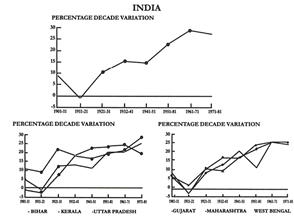
Which of the following states does not belong to the following groups: “Growth rate below the all-India growth rate except in decade mentioned in brackets”?
(A) Maharashtra (1931-41)
(B) West Bengal (1941-51)
(C) Odisha (1961-71)
(D) Bihar (1941-51)
(E) Uttar Pradesh (1971-81)
Now among the choices given below each of the questions you have to choose one which suitably belongs or does not belong to the group mentioned in the question.


Important Questions on Logical Interpretation of Data
DIRECTIONS : Questions are based on the graphs given below in which trends in decadal growth of population of India and some selected states are shown from 1901 to 1981. The states can be grouped on the basis of the decadal growth rates in relation to all-India average for each of the decades from 1992-11 to 1992-2002.
Now among the choices given below each of the questions you have to choose one which suitably belongs or does not belong to the group mentioned in the question.
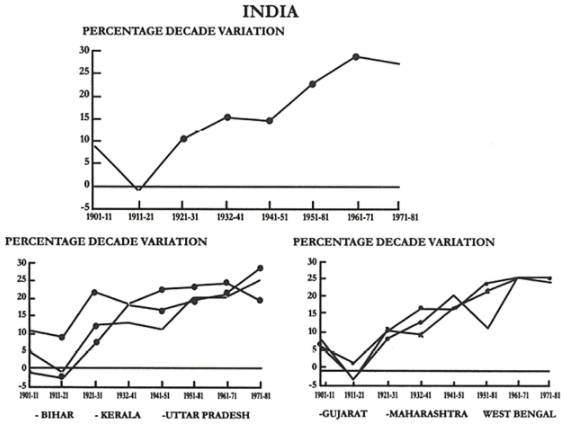
The state showing growth rate in four decades above all-India growth rate is
This question is based on the following graph of Sex Ratio -.
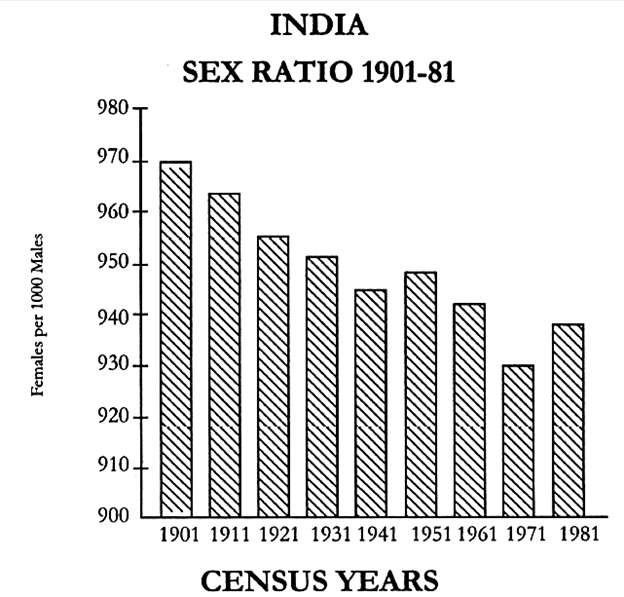
Which of the following statements is incorrect?
I. The sex ratio has been generally favourable to women.
II. The sex ratio has been generally adverse to women.
III. The sex ratio has deteriorated over the decades.
IV. Males have outnumbered females.
V. The number of women per thousand men is generally lesser.
This question is based on the following graph of Sex Ratio .
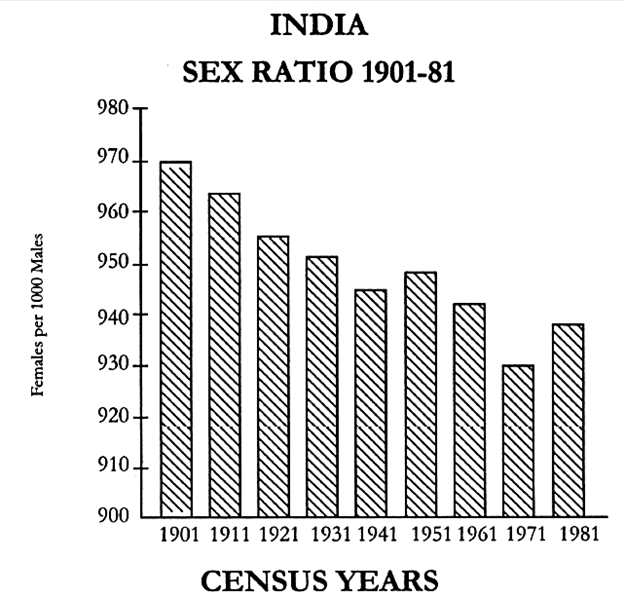
There is a gradual decline of sex-ratio from to except in the year.
DIRECTION: This question is based on the following graph of Sex Ratio
.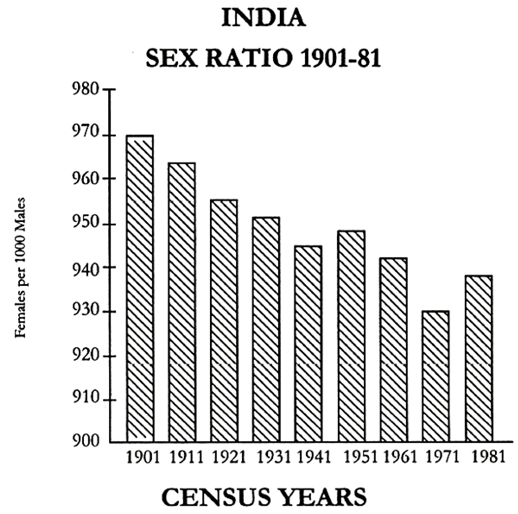
The highest deterioration rate in the sex ratio is found during the decade.
DIRECTION: This question is based on the following graph of Sex Ratio .
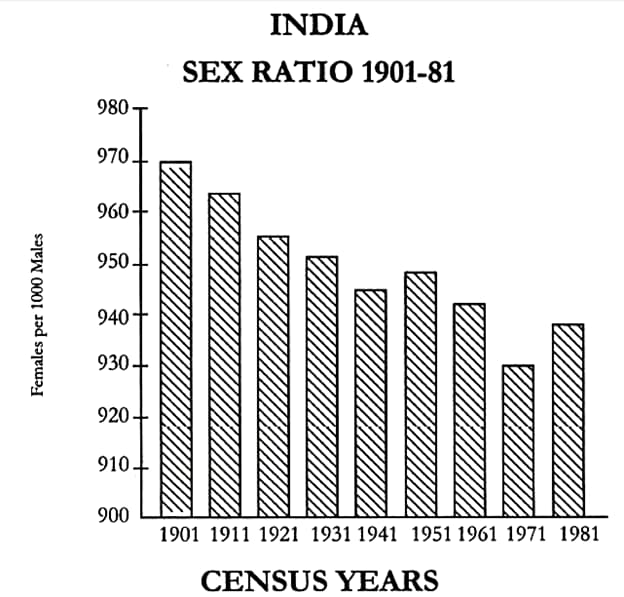
The sex ratio has improved in by:
Directions: The question given below is based on the graph of trends in sex ratio 1901-81 in India and 12 selected states (see above table). Study the trend carefully and answer the question given below.
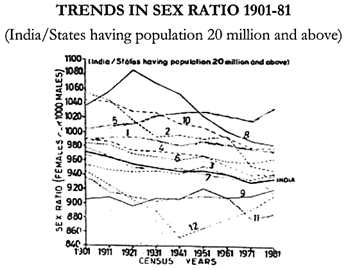
Which state records the highest sex ratio in which year?
DIRECTIONS : Questions are based on the graph of trends in sex ratio 1901-81 in India and 12 selected states (see above table). Study the trend carefully and answer the questions given below
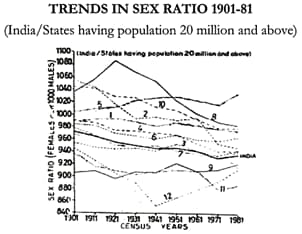
Which state records the lowest sex ratio in the year below all-India average?
DIRECTIONS : Questions are based on the graph of trends in sex ratio 1901-81 in India and 12 selected states (see above table). Study the trend carefully and answer the questions given below
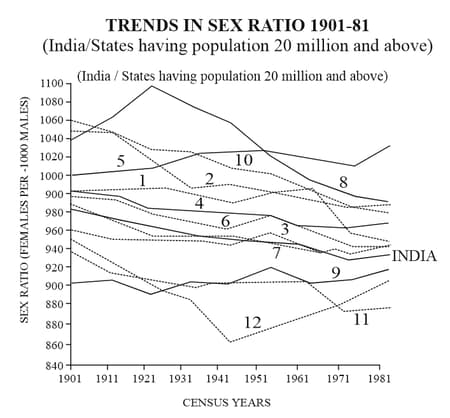
Indicate the group of states where the sex ratio is always below the all-India ratio during 1901-81.
(A) Andhra Pradesh, Madhya Pradesh, Karnataka
(B) Bihar, West Bengal, Odisha
(C) Rajasthan, Uttar Pradesh, West Bengal
(D) Goa, Daman and Diu
(E) Gujarat, Rajasthan, Maharashtra
